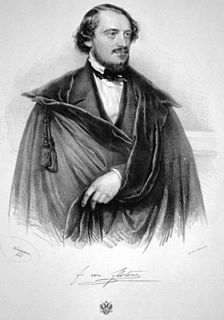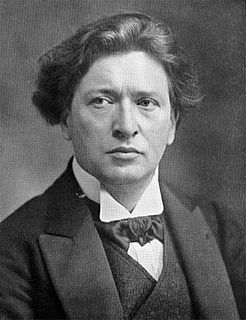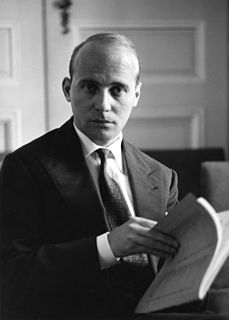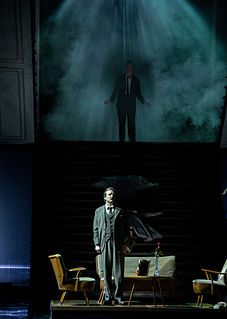 W
WAlessandro Stradella is a romantic opera in three acts composed by Friedrich von Flotow to a German libretto by "Wilhelm Friedrich". Set in Venice and the countryside near Rome, it is loosely based on the colourful life of the 17th-century Italian composer and singer Alessandro Stradella. It was first performed in its full version on 30 December 1844 at the Stadttheater in Hamburg.
 W
WAlmira, Königin von Castilien is George Frideric Handel's first opera, composed when he was 19 years old. It was first performed in Hamburg in January 1705.
 W
WDie Brautwahl is a "comic-fantastic" opera in three acts and an epilogue by Ferruccio Busoni. The German libretto, by Busoni himself, is based on a short story by E. T. A. Hoffmann. Busoni began work on this, his first completed opera, in 1905.
 W
WDer hochmütige, gestürzte und wieder erhabene Croesus is a three-act opera composed by Reinhard Keiser. The German language libretto by Lucas von Bostel was based on Nicolò Minato's 1678 dramma per musica Creso, the music for which was composed by the Emperor Leopold I.
 W
WDie Teufel von Loudun is an opera in three acts written in 1968 and 1969 by Polish composer Krzysztof Penderecki, and then revised in 1972 and 1975. It has a German libretto by the composer, based on John Whiting's dramatization of Aldous Huxley's book of the same name.
 W
WDon Quichotte auf der Hochzeit des Comacho, TVWV 21:32, is a one-act comic serenata by Georg Philipp Telemann. The libretto by the student poet Daniel Schiebeler is based on chapter 20 of volume 2 of Cervantes's novel Don Quixote. The opera premiered on 5 November 1761 in Hamburg. When first performed, it was given the title: Don Quichotte auf der Hochzeit des Comacho; later it was also known as Don Quixote der Löwenritter.
 W
WFigaro läßt sich scheiden, op.40, is an opera in two acts by Giselher Klebe based on the comedy of the same name by Ödön von Horváth. Klebe also wrote the libretto for this work.
 W
WFlavius Bertaridus, König der Langobarden is an opera by Georg Philipp Telemann performed in Hamburg at the Oper am Gänsemarkt in 1729. It is Telemann's only surviving opera in the German equivalent of the opera seria genre.
 W
WDer beglückte Florindo is an opera composed by Handel at the request of Reinhard Keiser, the manager of the Hamburg Opera. It was first performed at the Theater am Gänsemarkt in January 1708. It was probably directed from the harpsichord by Christoph Graupner.
 W
WHelp, Help, the Globolinks! is an opera in four scenes by Gian Carlo Menotti with an original English libretto by the composer. It was commissioned by the Hamburg State Opera and first performed as Hilfe, Hilfe, die Globolinks! in a German translation by Kurt Honolka on December 21, 1968 in a double bill with Menotti's Amahl and the Night Visitors. The opera had its English language premiere on August 1, 1969 in the United States at the Santa Fe Opera in a double bill with Igor Stravinsky's The Nightingale. Both premiere productions were directed by the composer. Many of the cast members from the Santa Fe production reprised their roles for the work's New York debut at the New York City Opera in December 1969.
 W
WHistoria von D. Johann Fausten is an opera by the Russian composer Alfred Schnittke (1934–1998) in three acts, with introduction and epilogue to the German libretto by Jörg Morgener and Alfred Schnittke after the anonymous prose book of the same name.
 W
WJacobowsky und der Oberst, Op. 49, is an opera in four acts by Giselher Klebe who also wrote the libretto based on the 1944 play of the Jacobowsky und der Oberst by Franz Werfel.
 W
WDer König Kandaules is an opera in three acts by the Austrian composer Alexander von Zemlinsky. Its libretto was adapted by the composer from Franz Blei's German translation of the play Le roi Candaule by French author André Gide.
 W
WNéron (Nero), is a grand opera in four acts by Anton Rubinstein to a libretto by Jules Barbier, loosely based on the story of the Roman Emperor Nero.
 W
WThe Roman Unrest, or The Noble-Minded Octavia, commonly called Octavia, is a singspiel in three acts by Reinhard Keiser to a German libretto by Barthold Feind. It premiered on 5 August 1705 at the Oper am Gänsemarkt, Hamburg.
 W
WOrpheus is an opera in three acts by the German composer Georg Philipp Telemann. It was first performed in a concert version at the Oper am Gänsemarkt in Hamburg on 9 March 1726. The anonymous libretto is based on the 1690 opera Orphée by Michel Duboullay, originally set by the French composer Louis Lully. Most of the work is in German but it also contains passages in French and Italian drawn from famous operas by Handel and Jean-Baptiste Lully. The music to these words is Telemann's own, however. The manuscript score of Telemann's Orpheus was not rediscovered until the late 20th century.
 W
WPimpinone, TWV 21:15, is a comic opera by the German composer Georg Philipp Telemann with a libretto by Johann Philipp Praetorius. Its full title is Die Ungleiche Heirat zwischen Vespetta und Pimpinone oder Das herrsch-süchtige Camer Mägden. The work is described as a Lustiges Zwischenspiel in three parts. It was first performed at the Oper am Gänsemarkt in Hamburg on 27 September 1725 as light relief between the acts of Telemann's adaptation of Handel's opera seria Tamerlano. Pimpinone was highly successful and pointed the way forward to later intermezzi, particularly Giovanni Battista Pergolesi's La serva padrona.
 W
WDer Sieg der fruchtbaren Pomona is a German-language opera by Reinhard Keiser to a libretto by Christian Heinrich Postel which premiered at the Hamburg Opera on 19 October 1702, for the birthday of Frederick IV of Denmark. The plot was based on the legend of Pomona and Jupiter, and the libretto was the last of a series which the elderly poet Postel had provided to the young Keiser during the five previous opera seasons. The opera was the first of four Keiser operas dedicated to the Danish crown.
 W
WDer Prinz von Homburg is a German-language opera in three acts by Hans Werner Henze with a libretto by Ingeborg Bachmann (1926–1973). It was completed in 1958 but premiered on 22 May 1960 in Hamburg.
 W
WGensericus oder Sieg der Schönheit TVWV 21:10 is a comic German-language opera in three acts by Georg Philipp Telemann. It was performed at the Oper am Gänsemarkt, while Keiser was director. Unlike Orpheus and Flavius Bertaridus, the opera contains no Italian-language set piece arias. The librettist was Christian Heinrich Postel.
 W
WDie tote Stadt, Op. 12, is an opera in three acts by Erich Wolfgang Korngold set to a libretto by Paul Schott, a collective pseudonym for the composer and his father, Julius Korngold. It is based on the 1892 novel Bruges-la-Morte by Georges Rodenbach.
 W
WDas Wunder der Heliane, Op. 20 is an opera in three acts by Erich Wolfgang Korngold with a libretto by Hans Müller-Einigen, after Hans Kaltneker. It was first performed at the Hamburg State Opera on 7 October 1927. A suite for violin and piano based on the music from the aria "Ich ging zu ihm" is in print at Schott publishing.